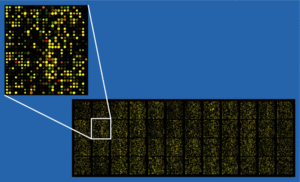Molecules of Loneliness

It is well known that our social environment has a major impact on our health, wellness and longevity. Lonely, socially isolated adults have a higher mortality than those who are socially engaged.
There has been a lot of speculation about the factors involved, and there is a fascinating study published in the current issue of the journal Genome Biology.
Researchers from UCLA identified a distinct pattern of gene expression in the white blood cells of people who experience chronically high levels of loneliness. The findings suggest that feelings of social isolation are linked to alterations in the activity of some of the genes that drive inflammation providing a molecular framework for understanding why social factors are linked to an increased risk of heart disease, viral infections and cancer.
Lonely people suffer from higher mortality than people who are not, and the debate has been whether that risk is a result of reduced social resources, or whether it is biological.
In this study the researchers used DNA microarrays to survey the activity of all known human genes in white blood cells from 14 individuals in the Chicago Health, Aging, and Social Relations Study. Six participants scored in the top 15% of the UCLA Loneliness Scale, a widely used measure of loneliness that was developed in the 1970s; the others scored in the bottom 15%. The researchers found 209 gene transcripts that were differentially expressed between the two groups, with 78 being over-expressed and 131 under-expressed. Genes over-expressed in lonely individuals included many involved in immune system activation and inflammation. At the same time, several other key gene sets were under-expressed, including those involved in antiviral responses and antibody production.

The first author on the study s Steve Cole, an associate professor of medicine in the division of Hematology-Oncology at the David Geffen School of Medicine, and a member of the UCLA Cousins Center for Psychoneuroimmunology, and he had this to say:
“What this study shows is that the biological impact of social isolation reaches down into some of our most basic internal processes the activity of our genes.
We found that changes in immune cell gene expression were specifically linked to the subjective experience of social distance. The differences we observed were independent of other known risk factors, such as health status, age, weight, and medication use. The changes were even independent of the objective size of a person’s social network.”“We found that what counts at the level of gene expression is not how many people you know, it’s how many you feel really close to over time.”
This study was supported by the National Institutes of Health, the Mind, Body, Brain and Health Initiative of the John D and Catherine T MacArthur Foundation, the Norman Cousins Center at UCLA, the John Templeton Foundation, and the James B Pendelton Charitable Trust.
Although small, this is remarkable and shows how much nature not only abhors a vacuum, but also dislikes isolation. We are social animals and anything that gets in the way of that will likely lead to a very poor outcome.
It is fitting that Norman Cousins, for whom the UCLA center is named, had this to say:
“The eternal quest of the individual human being is to shatter his loneliness.”
“The most terrible poverty is loneliness and the feeling of being unloved.”
-Mother Teresa of Calcutta (Albanian-born Indian Nun, Humanitarian and, in 1979, Winner of the Nobel Peace Prize, 1910-1997)






